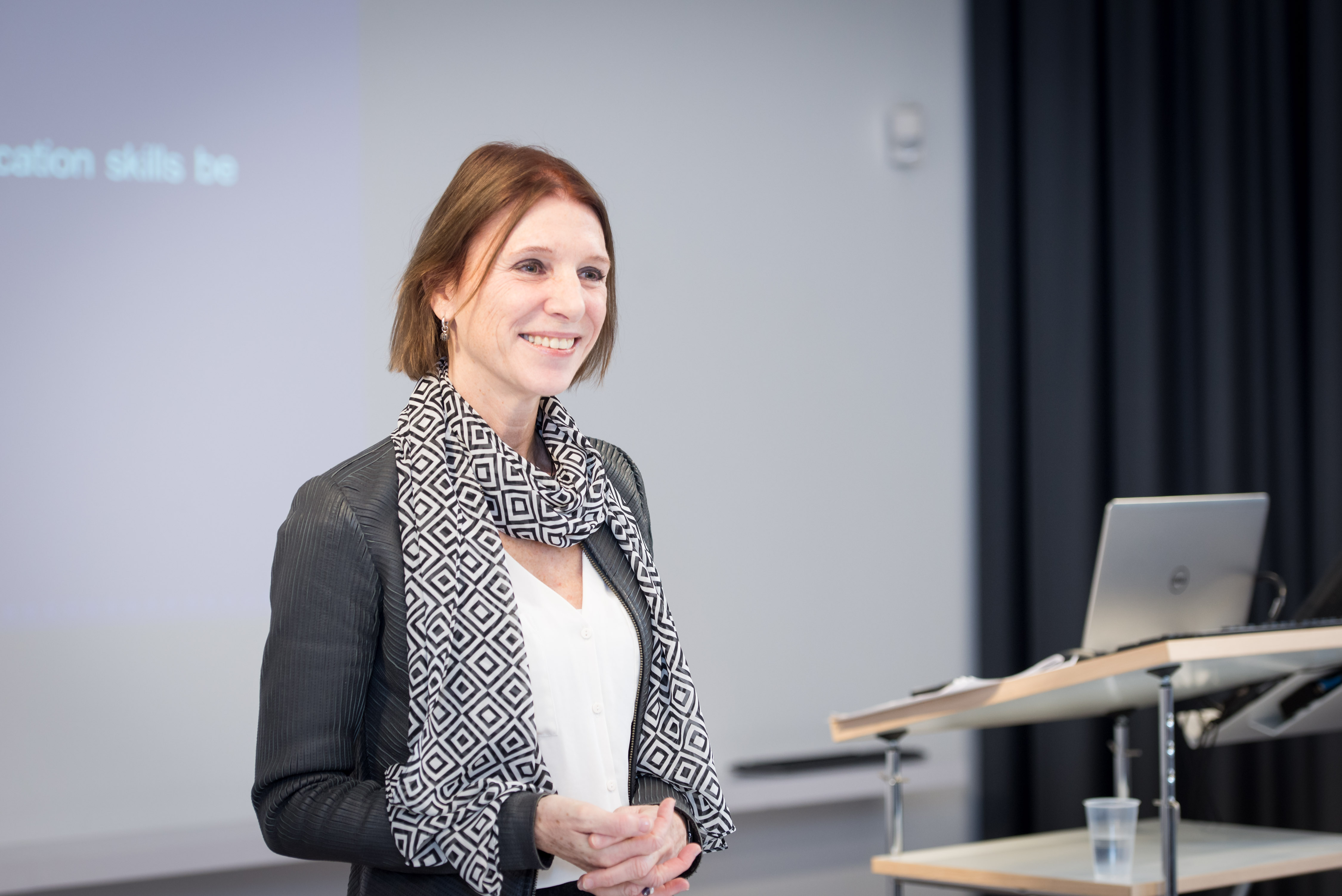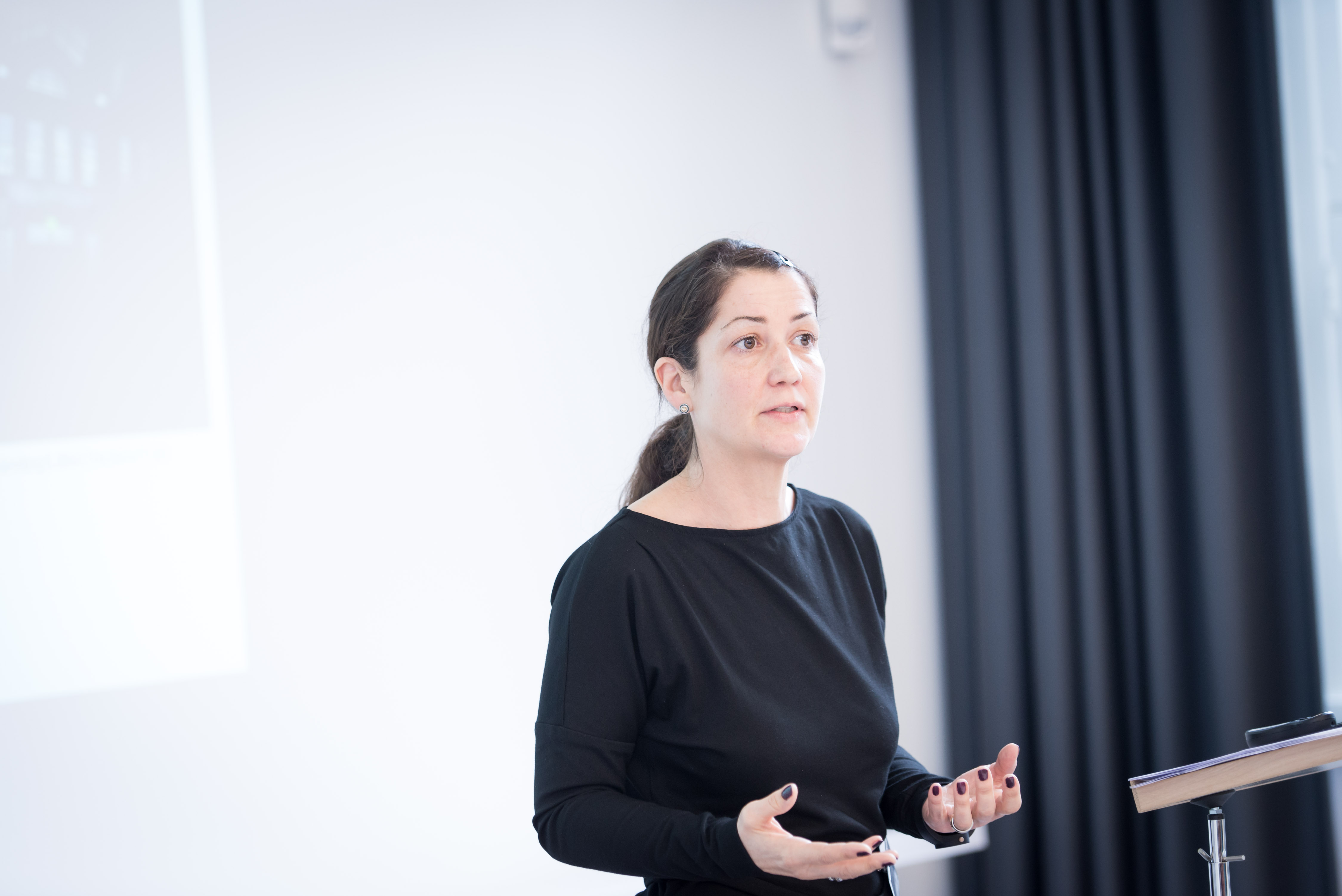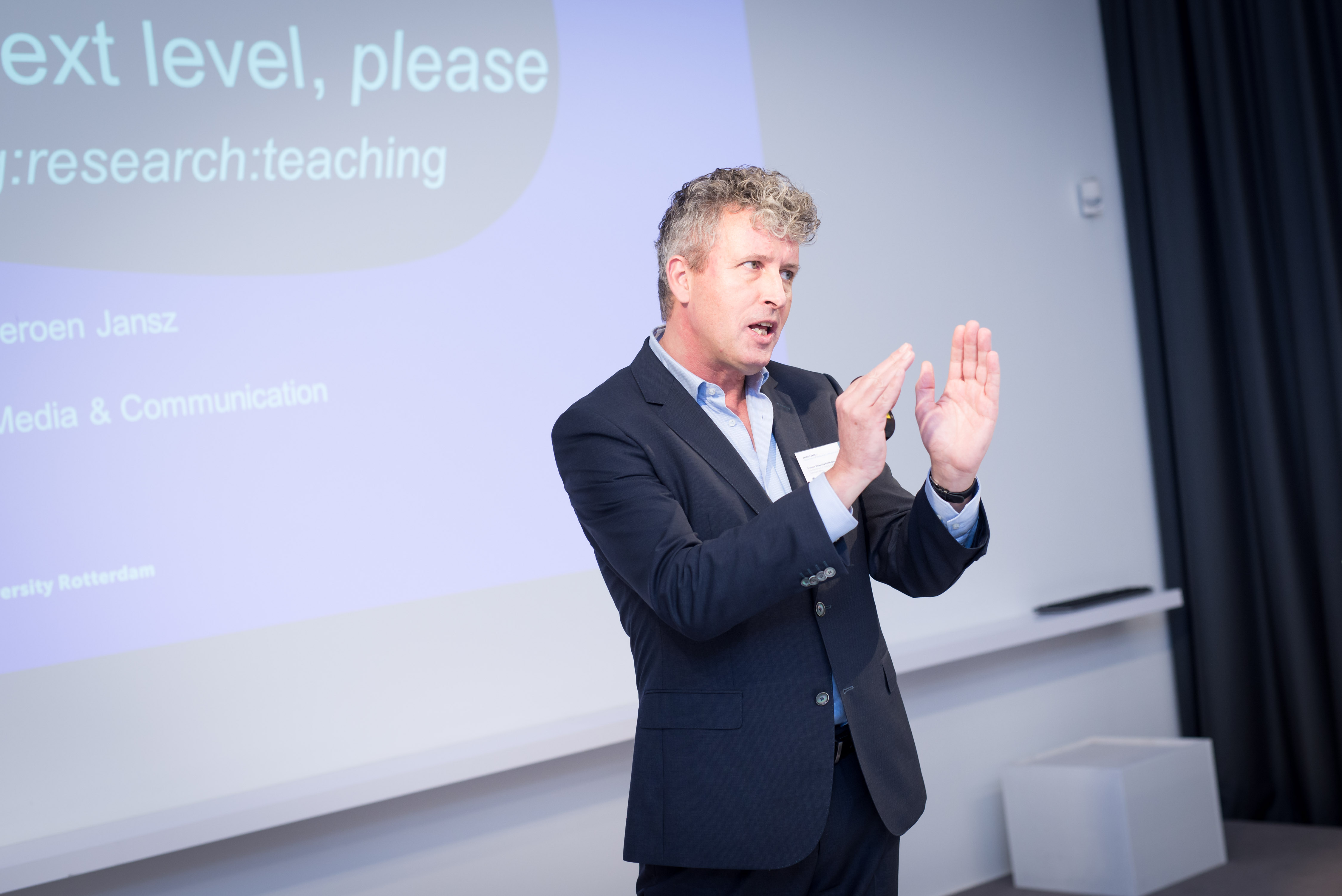While interest in games in education has grown over the past decade, there's still a lot of research to be done on serious games and their effectiveness. On December 18, the Centre for Education and Learning invited a great variety of speakers to discuss the gamification of learning during the fourth Innovation Room.
Gaming? Seriously?
Serious gaming is just one of the educational innovations Erasmus University Rotterdam (EUR) focuses on, others include online learning, MOOCs (Massive Open Online Courses) and tailor made education like blended bachelor programs.
According to Farshida Zafar (lecturer Law, Technology and Innovation at EUR) there's a common belief that games should be fun. This seems to contradict the concept of serious games. However, there have been lots of serious and educational games throughout history. For example, Monopoly was initially created to explain single tax theory.
A serious game's main purpose is to educate or train players. Yet it shouldn't sacrifice all fun for the sake of learning. Simply placing educational content in a game is not enough, because it doesn't guarantee success. Therefore, a serious game should meet several conditions: include a clear learning goal, be engaging and activating ('why should one play?'), and include immersive activities.

abcdeSIM: innovation in medical education
Medical education has changed drastically over the past two decades, according to internist acute medicine-intensivist Stephanie Klein Nagelvoort-Schuit. Laptops, smartphones and tablets are now a crucial part of a student's life. "We have to adapt to these technological changes", she says.
-
Every medical student is required to learn the ABCDE-method, which is used when treating a patient in need of emergency care. Teaching this method in a two day course would cost 1375 euro per student, a total of 4.250.000 euro per year for the Erasmus Medical Centre.
-
Together with some of her colleagues, Klein Nagelvoort developed a serious game that can decrease these costs and teach the ABCDE-method effectively.
-
The abcdeSIM is a serious game in which the student can practice treating a patient using the ABCDE-method. The game includes realistic cases, a virtual nurse, a monitor and all of the tools and medication one would find in an ER. The game is fun and immersive: the user needs to make fast decisions to save the patient. Afterwards, the user is presented with an end score and feedback.
-
The practice of teaching the ABCDE-method is as follows: theory > exam > game (treating at least six patient successfully) > one day training. This learning path is just as effective as the traditional two day course, but saves a lot of time and costs.

Research on serious gaming
Mary Dankbaar has done extensive research on the effectiveness of serious gaming. The results of prior research in this field have been quite surprising:
-
When it comes to knowledge acquisition, serious games are not more effective than other teaching methods. Most studies on serious gaming show mixed results;
-
Serious games may support skills learning, depending on their instructional design. For example: games that train the same (psychomotor) skills that are needed in laparoscopic procedures, have shown to have a positive effect on laparoscopic procedures.
In her own PhD research, Dankbaar studied the effects of abcdeSIM. She compared the motivation, cognitive load and clinical skills of three groups of students: a 'control group', a 'text-cases group' and a 'game group'. These are her most notable conclusions:
-
High fidelity game-based cases have a positive effect on motivation and cognitive effort. However, the increased complexity of these game-based cases may also impede learning for novices;
-
Serious games should take into account the student's proficiency level. Students' skills profit from practicing with cases with a range of task difficulty and clinical variation;
-
According to Dankbaar, future research on serious games should be design based and study the facilitation of engaged learning, the relation between a game's design features and effectiveness, and the development of communication skills through multiplayer games.

Hybrid design for serious gaming
To understand the world around us, we all use mental models. Heide Lukosch has helped develop several serious games and believes they can help us create new mental models. Serious games can improve skills, knowledge and attitudes. Their main educational effect is learning by doing.
Lukosch has developed an instructional design model for serious games - Hybrid Instructional Game Design:
-
Knowledge, skills, attitudes and transfer of what is learned to daily life is integrated in the game, following the educational 4C/ID-model. This framework allows for designing in a very structured way. For example, it means including a nested structure of game assignments and levels of increasing complexity.
-
This approach is demonstrated in the serious game CRAFT, which was developed for mechanic mechatronics education. CRAFT combines transferring theoretical knowledge and simulating a real life workplace in which students can practice their skills. Completing tasks gives them credit for the 'sandbox' part of the game, in which they can design their own roller coasters.
Microgaming is another hybrid approach towards serious games.
-
Microgames are short, flexible and require active participation from the user. They often represent simple models for complex systems.
-
This approach is demonstrated in the game Yard Crane Scheduler, in which the user is asked to place incoming containers using a crane. The game is followed by a de-briefing to transfer what has been learned.

The next level of teaching
"Games may not be the best tool for transferring knowledge, but they can push people in a certain direction", Jeroen Jansz (Department of Media & Communication, EUR) believes. His research has focused on player experience. According to Jansz, the appeal for gaming can be explained in two ways:
-
'Play theory' - play is a characteristic of all humans (Huizinga's homo ludens) and play is a prerequisite for cognitive and social development (Piaget, Sutton-Smith);
-
'Uses and gratifications theory' - the player seeks a certain gratification (e.g. competition), which is obtained by playing a game.
Jeroen Jansz is a part of Persuasive Gaming in Context, a four year project focusing on the characteristics, design principles, and effectiveness of persuasive gaming. The goal of a persuasive game is to change one's attitude. For example, to fight poverty or to stop smoking.
"However, the game is not forcing or coercing the player, there's still a measure of freedom."
Jansz doesn't use serious games in his own teaching, but games and gamification are addressed as topics in his lectures. In 2016, he and his colleagues will release a MOOC on Serious Gaming. "This MOOC will not replace campus teaching", he stresses. "However, it will enable rethinking course development, trying out new teaching formats and inspiring colleagues. It will take teaching to the next level."
 This is an article by Jelena Barisic.
This is an article by Jelena Barisic.
